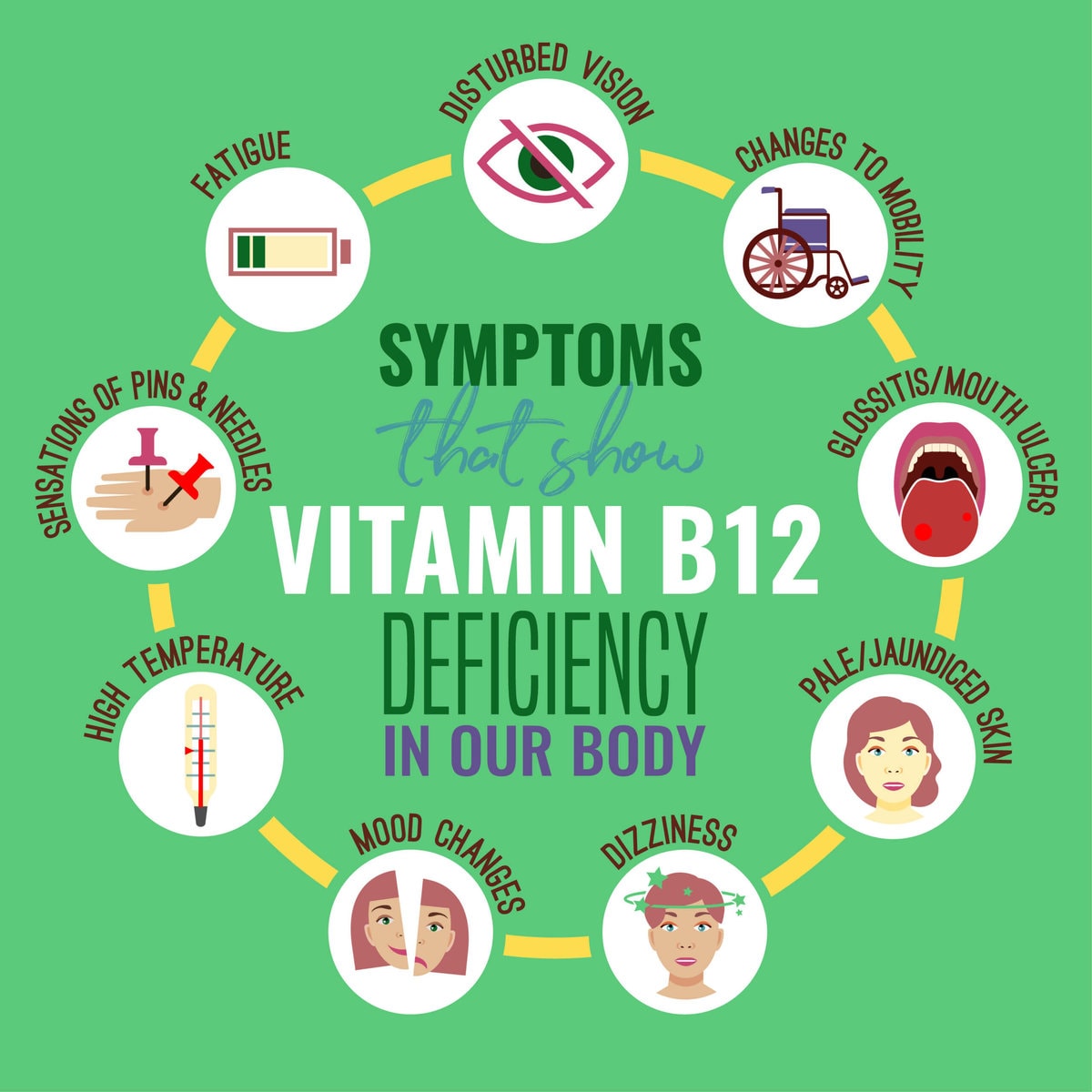
Vitamin B12 Deficiency in Vegetarians: Impact on Health and How to Address It
Introduction
Vitamin B12, also known as cobalamin, is a water-soluble vitamin crucial for numerous bodily functions. It plays a pivotal role in maintaining healthy nerve cells, producing DNA and red blood cells, and supporting overall brain function. Unfortunately, many vegetarians and vegans are at an increased risk of vitamin B12 deficiency due to the vitamin’s primary sources being animal-based products such as meat, dairy, and eggs.
In this blog, we’ll explore how vitamin B12 deficiency can affect the health of vegetarians, the common symptoms, and how to prevent or treat this deficiency through diet and supplementation.
Understanding Vitamin B12 and Its Role in the Body
Vitamin B12 is unique because it is naturally found in animal products. It is involved in the formation of red blood cells, DNA synthesis, and maintaining the nervous system. Deficiency in this vitamin can lead to serious health issues such as anemia, nerve damage, and cognitive decline. Because B12 is stored in the liver, symptoms of deficiency can take years to appear.
Why Vegetarians Are at Risk of Vitamin B12 Deficiency
For those following vegetarian or vegan diets, vitamin B12 intake is a concern. While some plant-based foods, such as fortified cereals and nutritional yeast, can provide vitamin B12, these sources are often not absorbed as efficiently as animal-based sources. Additionally, many vegetarians may not consume adequate amounts of these fortified foods, further increasing their risk.
Some reasons vegetarians are at risk include:
- Absence of Animal Products: Since B12 is predominantly found in meat, poultry, fish, eggs, and dairy products, vegetarians who avoid these foods are not getting enough B12.
- Inefficient Absorption: Plant-based sources of B12 are often in forms that are harder for the body to absorb.
- Age and Health Conditions: As people age, or in the presence of gastrointestinal conditions like Crohn’s disease, the body’s ability to absorb B12 decreases.
Symptoms of Vitamin B12 Deficiency in Vegetarians
Vitamin B12 deficiency manifests in various ways, with symptoms often being overlooked or mistaken for other health issues. Here are some common signs vegetarians may experience:
- Fatigue and Weakness: One of the first signs of B12 deficiency is fatigue. Since the vitamin is necessary for red blood cell production, a lack of it can result in anemia, causing tiredness and overall weakness.
- Nerve Damage: B12 is essential for nerve health. Prolonged deficiency can lead to numbness, tingling in the hands and feet, and even difficulty walking.
- Cognitive Decline: Deficiency in vitamin B12 has been linked to cognitive issues such as memory loss, difficulty concentrating, and in severe cases, depression or dementia.
- Pale or Jaundiced Skin: A lack of B12 can result in pale skin or a yellowish tint due to anemia or bilirubin buildup.
- Heart Palpitations: A vitamin B12 deficiency may cause irregular heartbeats or an elevated heart rate.
How Vitamin B12 Deficiency Affects Health: Long-Term Consequences
If left untreated, vitamin B12 deficiency can lead to long-term health issues that significantly affect the quality of life:
- Neurological Damage: Prolonged deficiency can lead to permanent nerve damage, affecting motor skills, muscle coordination, and even leading to permanent cognitive impairment.
- Mental Health Issues: There is a strong connection between vitamin B12 levels and mental health. Deficiency is linked to conditions like depression, anxiety, and irritability.
- Increased Risk of Heart Disease: Low B12 levels can raise homocysteine levels, an amino acid linked to an increased risk of heart disease.
- Impaired Immune Function: Insufficient vitamin B12 weakens the immune system, making the body more susceptible to infections.
Preventing and Managing Vitamin B12 Deficiency
- Fortified Foods: Many plant-based products are now fortified with vitamin B12. Common fortified foods include breakfast cereals, plant-based milk (like almond or soy milk), nutritional yeast, and some meat alternatives.
- B12 Supplements: For vegetarians who struggle to meet their B12 needs through food alone, supplementation can help. B12 supplements are available in various forms, including tablets, sublingual lozenges, and even injections. The recommended daily intake for adults is 2.4 micrograms, though some vegetarians may need higher doses based on individual health needs.
- Regular Monitoring: It’s essential for vegetarians, especially those who don’t consume fortified foods or supplements, to have regular blood tests to monitor their B12 levels. Early detection of deficiency can prevent long-term complications.
Conclusion
Vitamin B12 deficiency is a serious health concern for vegetarians, as they are at an increased risk of not getting enough from their diet. However, with proper awareness, dietary adjustments, and supplementation, vegetarians can effectively manage their B12 intake and avoid potential health complications. Whether through fortified foods, supplements, or regular check-ups, ensuring adequate B12 intake is essential for maintaining optimal health.
Take Action Today: If you are a vegetarian or vegan, consider assessing your B12 intake and consult with a healthcare provider to discuss whether supplementation or dietary changes are necessary to maintain your health.